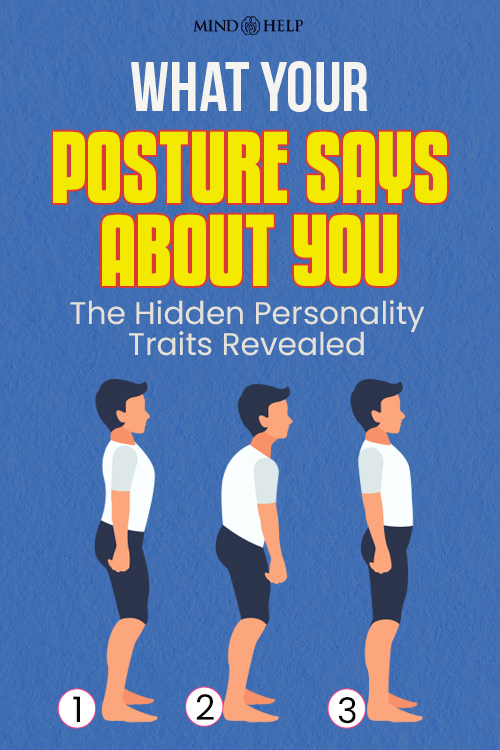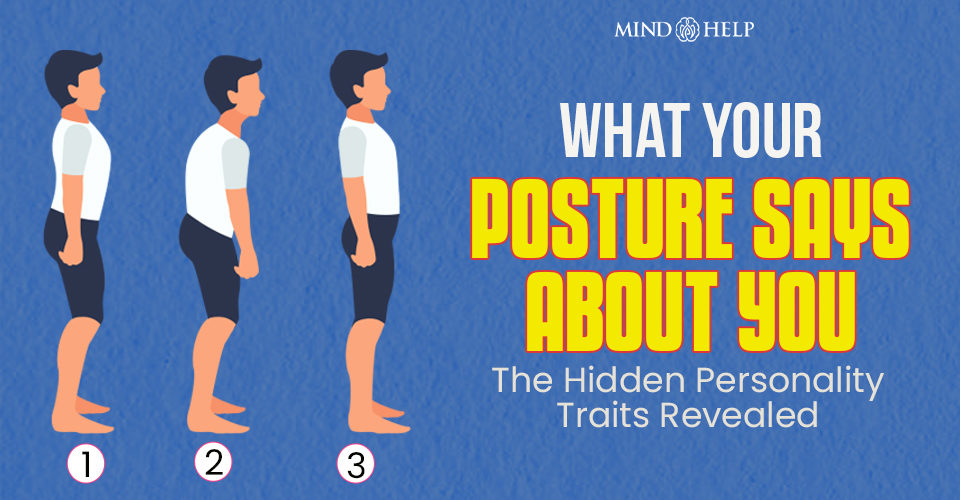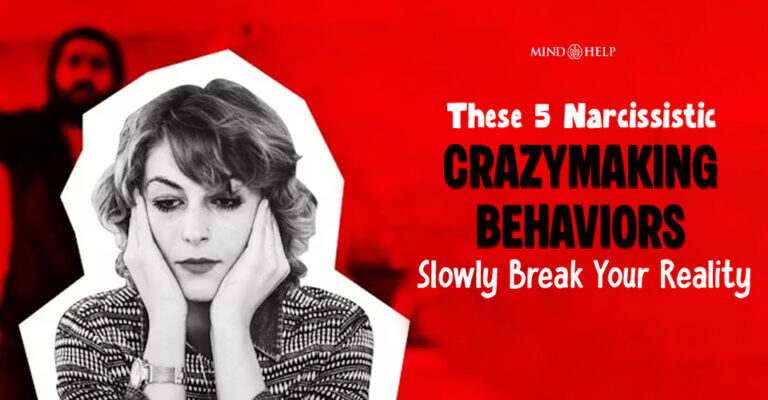Have you ever caught yourself thinking about what your posture says about you? Spoiler alert: it’s way more than you think. Your body is basically a loudspeaker, and every little stance you take is spilling your secrets.
The psychology of posture shows that how you stand can reveal confidence, insecurities, moods, and even those quirky personality traits you don’t talk about. This is where body language and personality collide – your feet, legs, and arms are doing the talking long before your mouth opens.
So if you are curious about what your standing posture says about you, get ready because today we are decoding six classic stances in this article.
Related: Thumb Shape Personality: What Does The Shape Of Your Thumb Say About You?
Standing Tall or Slouching? Here’s What Your Posture Says About You
1. Legs Apart
This stance screams: alpha vibes. Standing with your legs apart is like saying, “Yes, I belong here, and yes, I’m in charge.” It’s the ultimate power move in the psychology of posture; it shows that you are stable, balanced, and a little bit intimidating.
It also shows that you are grounded, like your feet are literally cemented into confidence. You give off boss energy, whether you are conscious about it or not. However, there’s a catch: don’t overdo it, otherwise you risk looking aggressive.
But if you use it right? It’s a silent flex, and you are showing the world that you have got your act together. Basically, your legs are saying what your résumé can’t.
2. Legs Crossed
If you are someone who stands with their legs crossed, arms relaxed, with half-dreamy eyes, then chances are you know things others don’t. This posture doesn’t scream, it whispers; it says, “I am calm, I am collected, and I am not giving you permissions to go all the way in. Yet.”
When it comes to body language and personality, this standing posture signals a mix of self-protection and creativity. You are not exactly closing people off, you are just very picky about who gets close to you. It’s a bit mysterious, and undeniably intriguing.
If you often stand this way, you probably hear things like: “You have got this aura about you.”
3. Slouching
A slouched posture tends to gets a bad rap, but it’s a bit complicated. This stance may sometimes scream, “I don’t care”, and sometimes it’s simply just “I am way to comfortable to stand like a soldier.”
When it comes to the psychology of posture, slouching can signal exhaustion or insecurity, but it can also reveal a super laid-back vibe.
People who slouch often come across as casual and nonchalant, but beware, it can also broadcast boredom or lack of confidence if you are not careful.
If you want to flip the script, straighten up – it will be like an instant upgrade. You will look more alert, alive, and confident. In other words, slouching is a double-edged sword – you choose which side to flash.
4. One Leg Forward
If you are someone who mostly stands with one of their legs slightly forward, then you are a curious, open-minded, and happy person overall.
In body language and personality reading, this posture suggests you are open to new experiences, present with what’s happening, and you might even have an adventurous streak.
This standing posture is less intimidating than the wide-stance power pose and more approachable.
What your posture says about you? You are present, but you are also kind of hinting that you have somewhere to go. Think of it as the “leaning in without actually leaning” move.
If this is your default stance, people probably see you as active, alert, and ready to roll.
Related: Why Are You Single? Choose Your Favorite Foods To Discover Why!
5. Arms Crossed
Ah yes, the classic crossed-arms pose. This standing posture is actually very famous in the psychology of posture. It’s often seen as a defensive stance, like you are putting up a shield. However, that’s not always the case.
This stance can sometimes mean that you feel comfortable, cozy, or literally keeping warm. Despite this, when people try to decode what your standing posture says about you, arms crossed usually points toward self-protection, caution, or even skepticism.
It’s like your body is giving the message, “You have to prove yourself before I trust you enough to let you in.” The upside? You also come across as self-contained, thoughtful, and strong-willed. A fortress, yes, definitely a very fascinating one.
6. Standing Straight
When it comes to the psychology of posture, this is right up there. Standing straight, shoulders back, chin level – you can call it the Beyoncé of body language. It radiates confidence, respect, and clarity. In the psychology of posture, it’s linked with leadership and self-assurance.
People see you as approachable yet commanding, confident without being condescending. And here’s the interesting science-y part: standing tall can actually make you feel more confident thanks to the mind-body connection.
When you stand straight, you are not just showing off good posture, you are displaying positivity, strength, and charisma. Basically this pose is your glow-up pose, no filter required.
Bottomline
So, there you have it folks! The different types of standing postures and what each of them means. So, the next time you find yourself slouching, standing straight or with your arms crossed, remember that your body is talking. Loudly.
The fascinating thing about the psychology of posture is that you can hack it. Shift your stance, and you shift the message. Whether you want to project creativity, openness, confidence, or mystery, the secret is literally in your feet, legs, and arms.
What your posture says about you isn’t just a fun party trick – it’s a blueprint of your personality. So go ahead – stand tall, play with it, and let your body do the talking.
Related: How You Hug People Could Reveal Your True Nature — Which Of The 7 Hugs Are You?
Let us know what your standing posture says about you in the comments down below!








